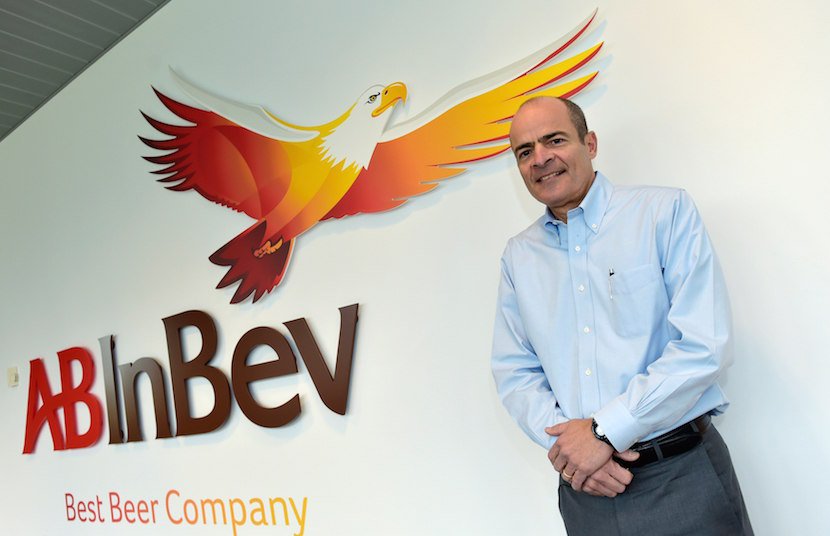In the future, staff at SABMiller are going to reflect on the pre-AB Inbev years as nice while they lasted. Hard core capitalism is about to hit the business: at the most obvious level its executives should plan to relocate from their plush Mayfair offices and prepare to start turning right when they enter airplanes. And if they believed they already work hard, the SABMiller team is about to discover a different meaning of the word. AB Inbev’s CEO Carlos Brito publicly revels in his tight-fisted approach to business. something he learnt from fellow Brazilian Jorge Paulo Lemann, the former Davis Cup tennis star who is the world’s 26th richest man, worth $25bn. Like his legendary mentor, Brito believes in putting employees under intense pressure – and keeping them there. The irony, of course, is that while SABMiller shareholders will appreciate that their board’s was able to squeeze an extra £6 a share out of the company’s new owners, the additional cost of acquisition will drive Brito to extract that £10bn extra out of the business in the shortest possible time. SABMiller employees will soon discover it’s not only politicians who know about austerity programmes. – Alec Hogg
By Matthew Boyle
(Bloomberg) — Carlos Brito says the company he runs resembles the bottles of beer it sells, in one important way: The contents are under pressure.
“If you want the best out of people you have to put pressure on them all the time,” the Brazilian chief of Anheuser- Busch InBev NV told a roomful of students at the Stanford Graduate School of Business in 2010.

Carlos Brito, chief executive of Anheuser-Busch InBev, poses for photographer prior to a news conference in Leuven in this file photo from February 26, 2015. Anheuser-Busch InBev has agreed to buy rival SABMiller in a takeover that would form a brewing colossus which makes around a third of the beer consumed globally. REUTERS/Eric Vidal/Files
Brito, a 55-year-old protege of dealmaker Jorge Paulo Lemann, has done just that in his decade in charge of the Budweiser maker. He’s crafted a hard-charging management style that’s delivered industry-beating profit margins and praise from beverage analysts and business-school deans alike. Shareholder returns under his tenure are almost double that of peers.
Now, Brito — a millionaire who wears jeans to work, eschews an office and prefers flying coach — has embarked on his biggest move, a $106-billion deal to buy British brewer SABMiller Plc. Tuesday’s offer, the fourth after a month of public jousting, won acceptance from SABMiller’s board where previous proposals had not.
Carlos Brito is one of the hardest-working, calculating power brokers that I have ever had the opportunity to watch work his business magic,” David “Bump” Williams, who runs a beverage- industry consulting firm in Shelton, Connecticut, said by e- mail. “He may not be the kind of person who would go to a baseball game with you and share a Budweiser, but when it comes to business, there are very few who are better than him.”
In part, the move was sparked by pressure that Brito himself is feeling, as sales in key markets like the U.S. and Brazil stagnate. The merger will give AB InBev access to faster- growing markets in Africa, where 65 million people are due to reach the legal drinking age by 2023.
Still, it’s SABMiller executives who will soon experience the pressure-packed existence that Brito espouses. Just ask the longtime managers at Anheuser-Busch in St. Louis — if you can find any. When Brito’s InBev acquired the storied American brewer in 2008, he laid off approximately 1,400 people, about 6 percent of the U.S. workforce. The cuts gave Brito the opportunity to slot in ambitious younger staffers who embraced his lean, results-driven culture.
“The first layer of A-B management left from Day One” after the deal closed, he told the Stanford students. “That was great because we then promoted people and they said, ‘This is my company now.’ ”
It’s a model that Brito learned from fellow Brazilian Lemann, who paid for Brito’s Stanford studies and has served as a mentor ever since. After studying mechanical engineering in his native Rio de Janeiro, Brito met Lemann, 76, through a family friend. When Brito graduated in 1989, he went to work as a sales manager at Brahma, a Brazilian brewery controlled by Lemann. He is now founding partner of private-equity firm 3G Capital, which backs AB InBev.
Brahma grew through acquisitions and in 2004 merged with Belgium’s Interbrew. The deal transformed a Latin American regional player into a global powerhouse, with brands such as Stella Artois that were centuries old. Within two years Brito and his Brazilian supporters were in charge, supplanting CEO John Brock.
No Offices
Those acolytes, who include finance chief Felipe Dutra and sales chief Luiz Fernando Edmond, do their work around a large table at the company’s Park Avenue headquarters in New York. It’s a stark contrast to the cushy corner offices that dot most midtown Manhattan high-rises — not to mention SABMiller’s digs in London’s tony Mayfair district.
Why such spare accommodations? “Because that gets information flowing,” Brito said in 2010. “We have connections in two-minute meetings across the table. We get much more stuff done. There’s no place to hide.”
Source: BizNews




























